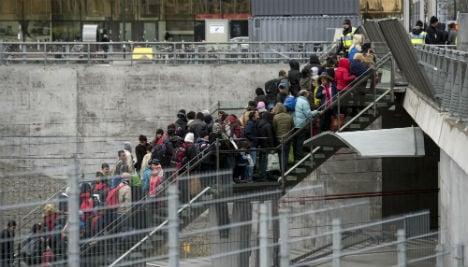The study was commissioned by the Swedish Civil Contingencies Agency (MSB) from Gothenburg University's Laboratory of Opinion Research (LORE), which maintains a 60,000-strong web-based citizen panel.
“Although the authorities were strained, confidence in the most important social institutions was maintained at much the same level as in the spring before the crisis,” Peter Esaiasson, Johan Martinsson and Jacob Sohlberg from Gothenburg University wrote in the Dagens Nyheter newspaper.
They said the decision of the Social Democrat-led coalition to sharply tighten Sweden’s refugee policy in November 2015, probably played a key role in maintaining trust.
“The reason that confidence could be maintained through the crisis is probably the u-turn in policy,” they wrote. “If the pressure on the authorities had continued at the same level for a longer time, the number of critics of refugee policy would probably have grown, causing social trust to continue to sink.”
The government made the decision after the country’s migration authorities declared that they were no longer able to house the 10,000 new arrivals then streaming in every week.
According to the study, those who were already critics of Sweden’s generous refugee policy registered a decline of between three and five points on a scale of one to 100 in their social trust over the period, while the strongest supporters of the policy saw their trust in political institutions decline slightly as a result of the u-turn.
Faith in politicians, parliament and the government was most affected in the early stages of the crisis, the researchers report, with the impact then moving more to authorities such as the Migration Agency and the Police. Faith in the police has been hardest hit by the crisis overall, dropping between five and ten units.
The researchers said that the surprisingly muted effect demonstrated the strength of Sweden’s social structures.
“It is an important result that trust in society was to a large extent strongly resistant throughout the crisis. This stress tolerance demonstrate the strength of Swedish democracy,” the wrote.
However, they cautioned that the increasing polarisation in opinion over refugee policy should be taken as a “warning sign”, indicating that politicians should not ignore those worried by high immigration.
“The underlying trust in society is sustainable through crises, but this cannot be taken as given even in Sweden,” they said.


 Please whitelist us to continue reading.
Please whitelist us to continue reading.